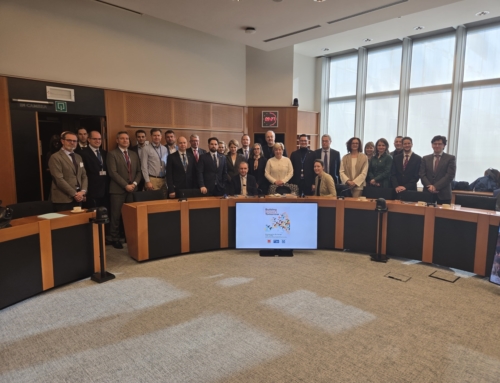Brussels, 12th March 2024
On Monday 11th March, EU member states approved an agreement on the rights of platform workers. Considered under the status of contractor or self-employed, this directive provides a pathway towards the protections that are granted to employed people while allowing for the possibility of preserving self-employment. Around 30 million people in the EU work for one or more app-based platforms as of 2022, a figure expected to rise to 43 million by 2025.
Known also as app-based or gig economy workers, these are individuals who have limited employment rights. Often working for giant global tech companies such as Amazon or Uber, these corporations use algorithmic systems in order to collect data about the worker. These practices have been the subject of scandals, as ‘racist’ algorithmic systems have blocked workers from the app because they failed to identify the workers, or have resulted in wage discrimination.
The new directive sets initial rules on the use of algorithmic systems, requiring gig economy companies to inform workers about when algorithmic technology is being used. According to the European Council, the tech giants will also “not be able process certain kinds of personal data such as:
- personal data on the emotional or psychological state of platform workers
- data related to private conversations
- data to predict actual or potential trade union activity
- data used to infer a worker’s racial or ethnic origin, migration status, political opinions, religious beliefs or health status
- biometric data, other than data used for authentication”
The vast majority of digital platform workers are in their 20s and 30s, according to Eurostat data. As these ages are the most common period where couples begin to marry and start families, it is crucial to improve employment conditions and work-life balance for the sake of families. At present, the flexibility promised by gig economy giants is not always matched by reality, as workers often need to work unsociable hours in order to make enough money to put food on the table for their family.
Health and safety is also a major concern, as app-based companies have come under fire for not providing sufficient protection when workers have been murdered or assaulted.
Gig economy work is not limited to taxi-driving or delivery services, but also can include babysitting, translation, elderly care, and more.
FAFCE is a member of the European Sunday Alliance campaign, advocating for a work-free Sunday and a right to disconnect, so that workers may spend quality time with their families and communities.
In a resolution on Mental Health and Young People, FAFCE recalled that “the combination of teleworking and childcare, especially for children with special needs, could pose a threat to family life and the well-being of both parents and children”. In the same resolution, FAFCE reiterated the call from the Council of Europe’s call for member states to “encourage policies to reconcile professional, personal and family life, in order to foster better protection of mental health”.
FAFCE repeats its employment and mental health policy calls for:
- family-based taxation systems in order to prevent the unequal treatment of parents and carers
- adequate and fully paid access to maternity, paternity and parental leaves for parents, regardless of effective time worked
- full freedom to parents to decide on the division of the leave between the father and the mother
- legally recognise the right to disconnect and a work-free Sunday, as fundamental freedom of each person
- implement national action plans of the Child Guarantee
- end discrimination of women in the workplace
Vincenzo Bassi, President of FAFCE, said: “During the COVID-19 pandemic, gig economy workers effectively became key workers who continued their services through the lockdowns. Their essential role in today’s economy requires them to be treated with dignity.
“These precarious workers cannot be viewed solely as a group of individuals, but as part of families and communities contributing to the common good. They are also often parents, husbands, wives, and sons and daughters – when we consider the rights of workers we should also consider their family responsibilities so as to prevent any discrimination.
In the context of a demographic winter and a culture of loneliness, the family is the key to intergenerational solidarity. Precarious and insecure work exacerbates loneliness. We must ensure then, that platform work delivers on the dignity and flexibility in service, not only for the workers themselves, but for the families they provide for.
The very workers that put food on our table should not be struggling to put food on their tables for their own families.”








